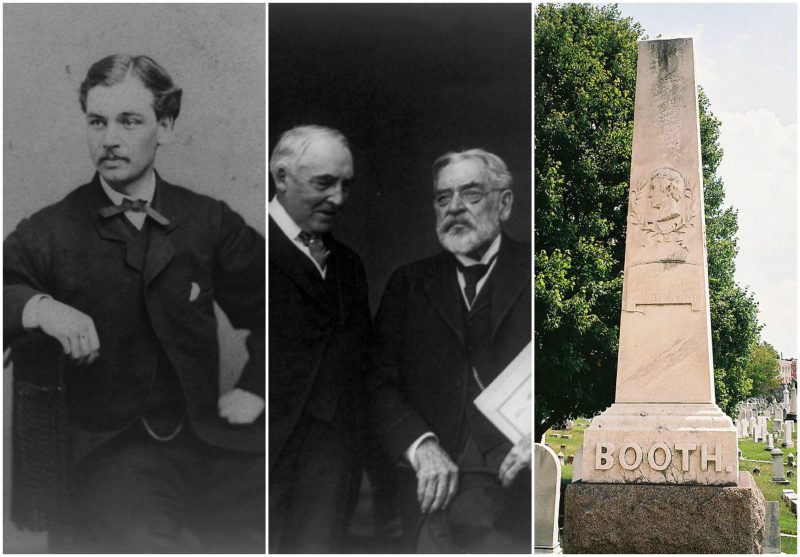In early 1865, Robert Lincoln was just getting off from a train which was just stopping by Jersey City. He needed to catch another train to Philadelphia, as the commute was from New York to Washington. Robert was just a Harvard student, taking a well-deserved break for the semester.
He felt that the Union Army needed him more than the Harvard College while the Civil War was at its peak. Later, he ended up enrolling in General Ulysses S. Grant’s staff as a captain.
Patiently waiting for his Philadelphia ticket, he was in a rather awkward position, backed up against a train door as the dense crowds of people were hastily purchasing their sleeping car places. The train suddenly began to move, moving Robert off his feet and he fell into the narrow gap between the two cars and the platform.
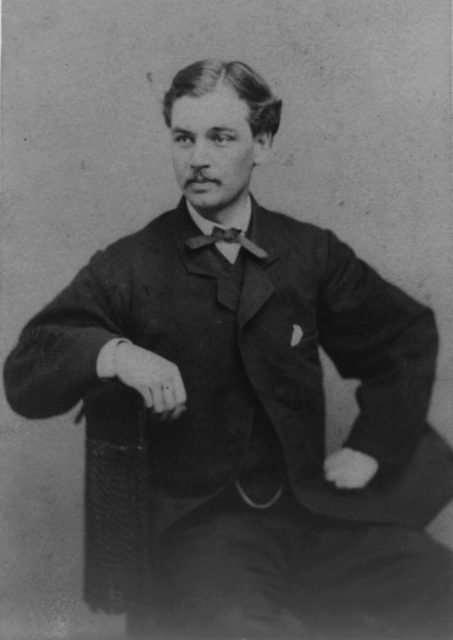
A gentleman saw through the orderly stampede and swiftly caught the young Robert Lincoln by his collar, pulling him up to safety. The train was just beginning to move and if it wasn’t for the gentleman’s quick thinking, Robert would have been seriously injured or worse. He saw the brave man’s face and immediately recognized him as the actor from the theater- Edwin Booth, the man who played Hamlet better than anyone else.
Booth failed to grasp the fact that he had just managed to save the life of the president’s son whom he voted for. “That was a narrow escape, Mr. Booth,”- the young man expressed his endless gratitude, undoubtedly distressed from the heart-stopping incident and starstruck at the same time.
The news of the incident were delivered by Robert (since he joined the army) to Colonel Adam Badeau who was an officer among General Ulysses S. Grant’s ranks. He immediately wrote a letter of gratitude to the oblivious actor, offering service to him as he had done a deed of patriotic proportions, to which Booth replied with a friendly offering of invitations when he was to play in the local theaters.
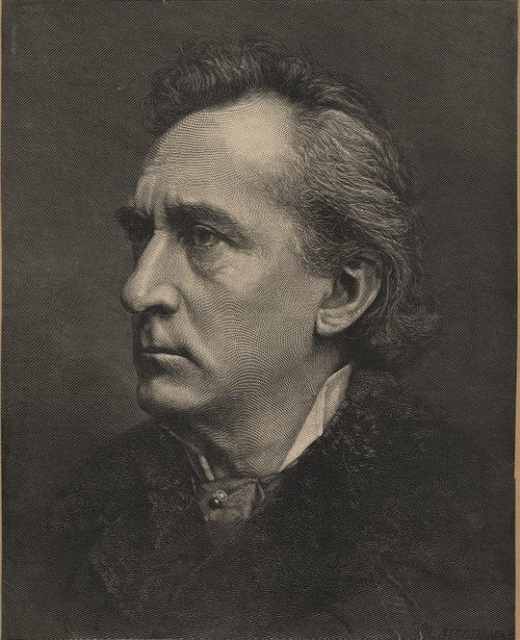
The credibility and details of the incident were put into question because of the sheer coincidence of the whole event, being contemporaneous with Lincoln’s assassination. Nevertheless, Robert Lincoln shed light onto the story in a letter written to Richard Gilder, an editor from Century Magazine, disclosing the details in 1909.
In contrast to his brother John’s secessionist ideology, Edwin Thomas Booth was a Unionist and a strong Lincoln supporter. The illegitimate son of prominent actor, Junius Brutus Booth, was pretty famous for his brilliant portrayal of Hamlet.
Many historians agree that Edwin was the greatest Shakespearean tragic hero. A highly successful actor, he founded the “Booth’s Theater” in New York, 1869, which was a very modernized theater for its time, and he toured in America and Europe.
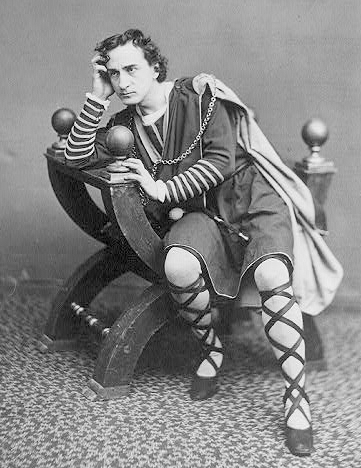
Sadly, his theatrical success was greatly overshadowed by the president’s assassination at the hands of his own brother. There have been records of serious disagreement or malice in the Booth family, but there might have been some connection to the assassination.
On some occasions, the father and the two sons had the joy of performing together in the Julius Caesar play in 1864.
Declared by many as the most grandiose of plays, it was held at the Winter Garden Theater in New York, with Edwin as the starring role of Brutus, much to his brother’s dismay.
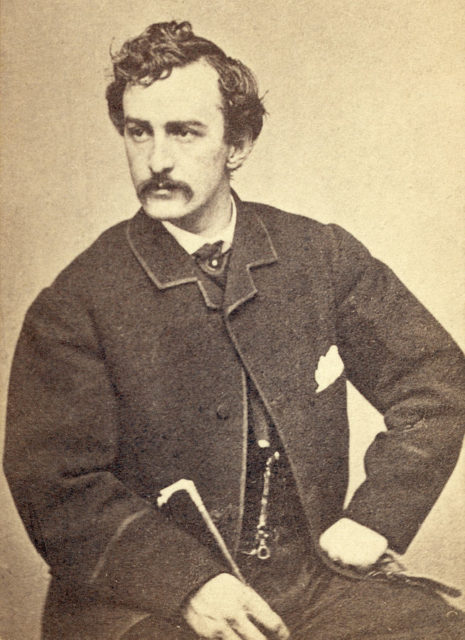
Adding to the fact that Edwin voted for Lincoln, this poured, even more, fuel to the fire that drove John to jealousy and madness. Being constantly shunned by his family, he swore to make his name famous in the most horrible way possible.
The moment after John Wilkes Booth shot President Lincoln, in a bizarre manner of triumph, he got on the Ford Theater stage and yelled “Sic semper tyrannis!”, which meant “thus always to tyrants”. The gruesome act was surrounded by outlandish theatrical notions as if John Wilkes Booth wanted to outshine his brother and show his family what he was capable of.
Robert Lincoln was the only surviving son of Abraham Lincoln. Booth’s heroic act, along with the president’s assassination, certainly changed the course of U.S. history.
Strangely enough, Robert has been an eyewitness when President James Abram Garfield was assassinated in 1881. He was also present when President McKinley was shot in 1901, but declined the invitation to the Ford Theater when his father was killed, most likely from fear of superstition.
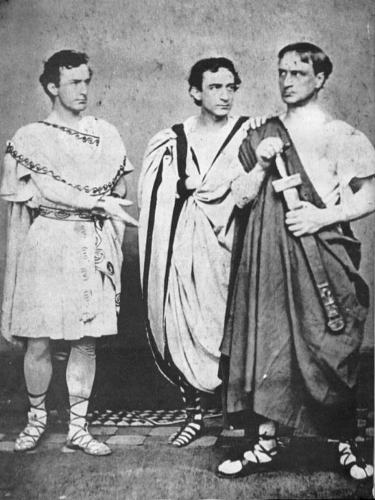
This haunted Robert Lincoln for the rest of his life, thinking that John Wilkes Booth would have had to get past him, as his seat was next to the door of the theater and he could recognize him. Because of this, Robert began to turn down every invitation except once when he was invited to the Lincoln Memorial in 1922.
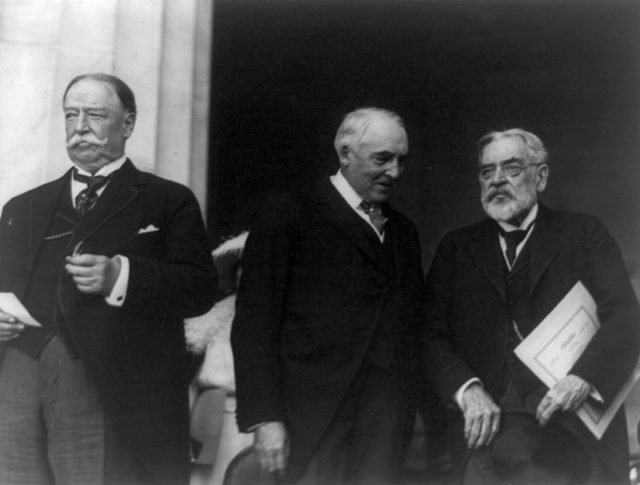
John Booth’s violent act that changed the U.S. also ruined his family’s life, reducing a well-respected family to ashes. The family members were stricken by serious problems that had them associated with Booth. At the same time, Edwin Booth was distressed and shocked to non-belief.
He was plunged into a deep depression knowing that the president he voted for was assassinated by his own brother, and now his brother will be certainly executed for his terrible crime. Continuing the chain of negative events, the family of Edwin Booth’s fiancee canceled the engagement, additionally contributing to Edwin and his family’s agony.
For the rest of his life, Edwin Booth would clean up his brother’s mess in a harrowing act of penitence. He paid up for all the damages, tied up loose ends, even though the event of saving Robert’s life from serious injury was obscured by the assassination. For years he begged for his brother’s remains to be returned for a proper burial, and in 1869, President Johnson finally approved it. John Wilkes Booth was buried in a nameless grave in Mount Cemetery, Baltimore.
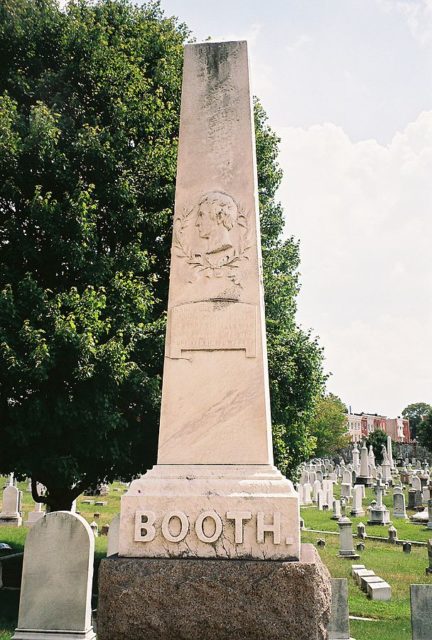
Though he did nothing wrong, Edwin Booth still found some comfort in saving the president’s only surviving son. The slate of the family would never get fully cleaned, as the damage has been already done.
He returned to his acting career 8 months after the assassination. Both Robert and Edwin held no grudges and were in good relations throughout their lives.
Read another story from us: What John Wilkes Booth said after he killed Abraham Lincoln
Lincoln’s Second Inaugural Address clearly states:”With malice toward none. With charity for all”. It should serve as a glimmering example for anyone who does not want to “bury the hatchet” any time soon.
